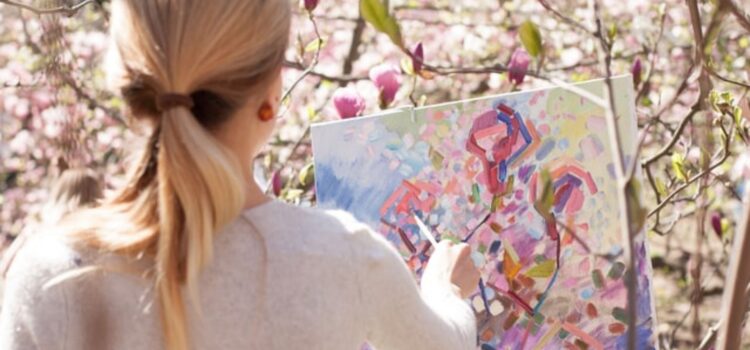

This article is an excerpt from the Shortform book guide to "Seeking Wisdom" by Julia Cameron. Shortform has the world's best summaries and analyses of books you should be reading.
Like this article? Sign up for a free trial here .
What is spiritual creativity? How can you be more creative through your faith?
In Seeking Wisdom, Julia Cameron says that you should absorb God’s messages, gifts, and signs and channel them into your creative endeavors. Her book lays out how to fuel creativity through spirituality.
Read below four ways to unlock spiritual creativity, according to Cameron.
1. Have Faith
Cameron says that above all, you must maintain your faith in God and the future to boost spiritual creativity. When you believe that the future will be good and that God will guide you in the right direction, your creative work will flourish. Cameron says that your faith will provide answers when you need them and ideas when you lack them—all you need to do is ask God and have faith in the signs you receive. Faith is the foundation of creativity, and without it, you’ll struggle.
Cameron adds that a crucial way you can show your faith is to regularly dedicate time to your creative endeavors, even if you don’t know what you want to create. If you have faith and ask for God’s help, ideas will come to you as you work. She adds that when she asks God for guidance on what to write next, she’s often directed just to write. As she begins, she feels God’s creative power flow through her and ends up satisfied with the result. So pick up your paintbrush, instrument, or tools, set to work, and listen for God’s signs.
Similarly, Cameron warns that when you’re facing a “creative block,” it’s often an issue of faith—instead of trusting the process, you believe that you lack good ideas, that ideas won’t come, or that others can do it better. If you let yourself continue down this path, you’re likely to end up in despair—the total opposite of faith.
If you reach a point of despair, you ignore the positive things in life, focus on the negative things, and see more negativity coming your way. You become resentful toward life and God and ultimately block yourself from spiritual creativity.
2. Be Inspired by God’s Gifts
Cameron explains that God provides multiple forms of inspiration if we’re able to recognize them. God’s gifts include experiences of serendipity, miraculous events, other people, and even the beauty of nature.
Reflect on the recent gifts God has sent you and consider what you could learn from them—have you made a discovery about nature, about people, about a certain topic, or even about yourself? Have any of these gifts encouraged you to pursue a new creative endeavor? Is there anyone you know who specializes in a topic you’re interested in or who you think could help you develop an idea?
Cameron explains that you should always be on the lookout for signs of inspiration and keep these questions in the back of your mind to enhance your spiritual creativity. Sometimes God’s signs are big and flashing, pointing you in a very obvious direction, but other times they’re subtle and only obvious if you’re looking for them.
(Shortform note: Many experts claim that a helpful way to identify opportunities and inspiration in life (what Cameron calls “God’s gifts”) is to cultivate a pronoia mindset. Pronoia is the opposite of paranoia—the belief that the universe and everyone in it are conspiring in your favor. When you believe that there’s some magic force turning the gears of life in your favor, you can more easily recognize opportunities and inspirations because you’re expecting them. You can start to develop a pronoia mindset by not taking offense to things, avoiding negative conversations, and always believing that something amazing is waiting for you right around the corner.)
3. Take Care of Yourself
Cameron says that taking good care of yourself and treating yourself sometimes can boost your spiritual creativity. Take care of yourself by removing unnecessary anxieties from your life, having reasonable expectations for yourself, trusting yourself, and doing your best. For example, don’t force yourself to do housework on your days off unless you’re feeling up to it—doing so may cause unnecessary stress that will hinder creativity. If you think a personal goal or deadline you’ve set is stressing you out, extend your deadline or break your goal up into a few smaller pieces.
She adds that treating yourself can make you feel more spiritually creative as well. For example, you could make your favorite dessert, get your nails done, or take a trip to the beach. Cameron adds that this is also partially the point of solo adventures—to be on your own doing something you enjoy without any stress or expectations.
4. Create a Prayer Routine
Last but not least, Cameron says you must create a regular prayer routine to maintain your spiritual creativity. You should continue your routine of writing Morning Pages and writing for guidance every day, taking solo adventures every week, and going on walks twice a week, but you should also create your own routine for prayer.
Cameron recommends praying every night as a starting point. However, she emphasizes that prayer is a unique experience, and you should do what’s right for you—maybe you pray when you wake up, before or after you eat, or just whenever you feel the urge. Follow your instincts, but make sure prayer is a daily occurrence in your life.

———End of Preview———
Like what you just read? Read the rest of the world's best book summary and analysis of Julia Cameron's "Seeking Wisdom" at Shortform .
Here's what you'll find in our full Seeking Wisdom summary :
- How to channel your spirituality into your creative endeavors
- How to begin communicating with the divine
- The types of prayers you should practice






